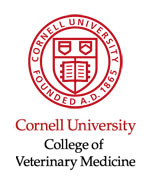"A Regional/Community Approach to Conservation
and Development Interventions at the Livestock/Wildlife
Interface"
George Gitau
Conflicts between humans, livestock, wildlife and the environment
have remained a sensitive issue in many parts of Africa,
especially in East Africa. These conflicts arise from the
use of shared natural resources that have been increasingly
dwindling during the last few years. The latter is associated
with increasing human population, change of land tenure system
and land use to agro-pastoralism and sedentarisation of formally
migratory groups of pastoralists. In addition, there has
been an increased uncontrolled encroachment of national parks
and private ranches by the pastoralists in search of grazing
resources.
The United Nations Convention to Combat Desertification (UNCCD)
selected the African Union-Interafrican Bureau for Animal
Resources (AU-IBAR) as one of its focal points. The UNCCD
mandated AU-IBAR to address the Thematic Programme Network
3 (TPN3) that focuses on the theme area of “rational
use of rangelands and fodder conservation.” In order
to address the above theme, AU-IBAR has initiated a cluster
of stakeholder meetings in 2002 comprised of local, regional
and international institutions with interest or currently
working at the livestock / wildlife / environment interface.
After a series of meetings between AU/IBAR and the partners,
existing gaps were identified in the understanding of the
socio-economic, political and institutional drivers for environmental
change and degradation at the interface between the livestock
within pastoral systems and wildlife and the environment.
A proposal has been developed for funding and is currently
receiving positive consideration by UNEP-GEF.
The main objectives of the project proposal are 1), to develop
models and approaches to stabilize livestock/wildlife populations
for sustainable livelihoods, biodiversity conservation and
reduced land degradation and 2), to enhance capacity for
management at the livestock-wildlife interface for economics
and/or food security in Africa. This will be achieved through
community and regional approaches via compilation of a database
from available information from other studies and from pilot
activities set-up by the project, and by enhancement of capacity
for dissemination of the livestock / wildlife / environment
interface model through the Thematic Programme Network 3
in Africa.
|
|











